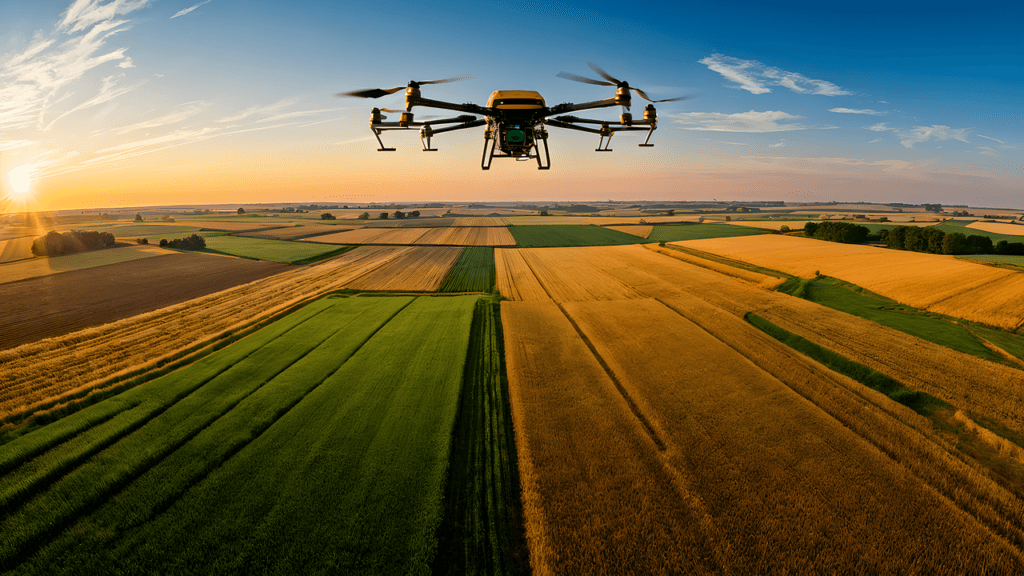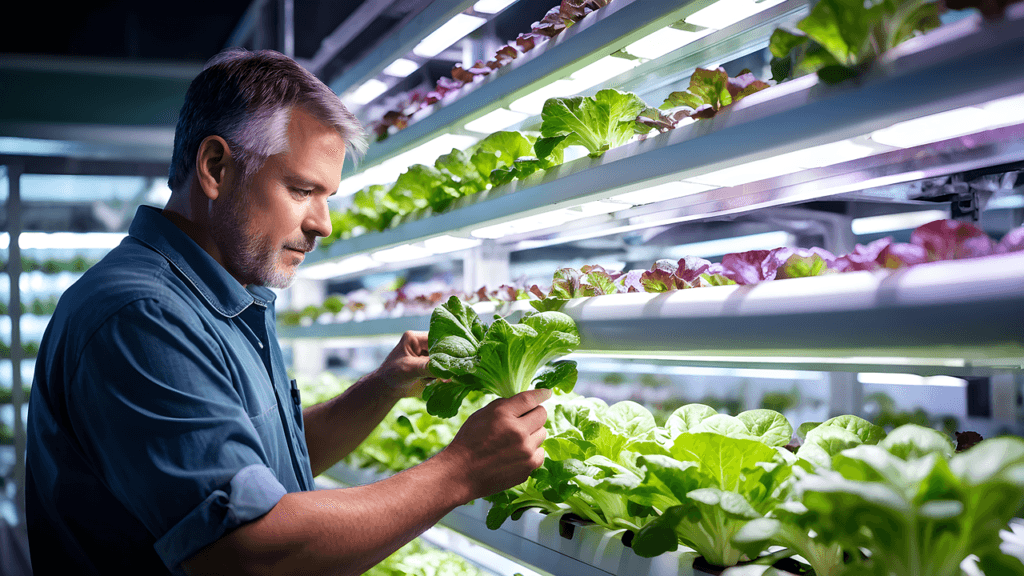Revolutionizing Crop Yields and Sustainability
The agricultural industry is undergoing a transformation driven by advancements in artificial intelligence (AI). From optimizing crop yields to enhancing sustainability, AI is proving to be a game-changer for farmers and agricultural businesses. In this article, we explore how AI is revolutionizing modern farming practices and the benefits it brings to crop management, pest control, and resource efficiency.
From Tradition to Technology
For centuries, farming has relied on traditional methods passed down through generations. However, the rise of technology, including AI, is changing the way farmers approach their operations. AI-powered tools are helping farmers make data-driven decisions, improve productivity, and reduce environmental impact.

AI in Crop Monitoring
One of the most significant applications of AI in agriculture is crop monitoring. By analyzing vast amounts of data from sensors and satellite imagery, AI systems can predict the health and growth patterns of crops. For example, AI algorithms can identify nutrient deficiencies or stress factors like drought or overwatering, enabling farmers to take corrective actions early.
- Precision Farming: AI-powered tools allow farmers to monitor soil conditions, track crop health, and optimize irrigation systems. This precision reduces waste and improves yield.
- Predictive Analytics: By analyzing historical data and weather patterns, AI can forecast potential harvest outcomes, helping farmers prepare for market demands or adjust planting times.
AI-Driven Pest Control
Pest control has always been a challenging aspect of farming. Traditional methods often involve chemical sprays, which can harm the environment and pose health risks. AI is providing more sustainable solutions by using machine learning to identify pest infestations early and recommend targeted treatment plans.
- Drones and Machine Learning: Drones equipped with cameras and sensors can survey fields for signs of pests or disease. AI algorithms then analyze this data to create heat maps, highlighting areas that need attention.
- Predictive Pest Migration: AI systems can predict the movement of pests based on weather patterns and environmental changes, allowing farmers to implement control measures before infestations escalate.
AI and Water Management
Water is a critical resource in agriculture, and optimizing its use is essential for sustainability. AI tools are helping farmers manage water more efficiently by analyzing data from sensors and weather forecasts.
- Irrigation Optimization: By monitoring soil moisture levels and weather conditions, AI systems can determine the optimal times for irrigation. This reduces water waste and ensures crops receive consistent moisture.
- Aqueduct Design: AI algorithms can analyze topography and soil type to design aqueducts that minimize water loss and maximize efficiency.
AI in Agricultural Sustainability

Sustainability is a key focus of modern farming, and AI plays a pivotal role in achieving this goal. By analyzing data from farm operations, AI systems can identify practices that harm the environment and suggest more sustainable alternatives.
- Carbon Footprint Reduction: AI tools can monitor emissions related to farming activities and provide recommendations for reducing them, such as adopting crop rotation techniques or using renewable energy.
- Biodiversity Enhancement: AI-powered solutions can identify areas where biodiversity is at risk and recommend actions to mitigate it, such as creating wildlife corridors.
Challenges and Considerations
While AI offers immense potential for modern farming, there are challenges that farmers and agricultural businesses must consider.
High Implementation Costs
The initial cost of adopting AI tools can be a barrier for small-scale farmers or those with limited resources. However, the long-term benefits in terms of productivity and efficiency often outweigh these costs.
Data Privacy and Security
As AI systems collect vast amounts of data, ensuring that this information is secure and compliant with regulations is crucial. Farmers must be cautious about data privacy and work with trusted providers to avoid breaches.
Adoption Hesitancy
Some farmers may be hesitant to adopt new technologies due to a lack of knowledge or comfort with AI systems. Training programs and workshops can help bridge this gap and encourage wider adoption.
The Future of Farming: AI and Beyond

The integration of AI into farming operations is just the beginning. As technology continues to evolve, farmers can expect even more sophisticated tools that enhance productivity and sustainability.
- Integration with IoT Devices: Combining AI with Internet of Things (IoT) devices will create a seamless system where data from sensors and equipment can be analyzed in real time.
- Advanced Analytics: Future AI systems may use machine learning to identify patterns and predict outcomes, enabling farmers to make even more informed decisions.
Conclusion
AI is revolutionizing the agricultural industry by providing tools that optimize crop yields, enhance pest control, and promote sustainability. While there are challenges to overcome, the benefits of AI for modern farming are undeniable. As technology continues to advance, farmers and agricultural businesses must embrace these innovations to stay competitive and contribute to a more sustainable future.
If you’re ready to explore how AI can transform your farming operations, check out StarPhiX open resources for other AI-driven agriculture platforms that provide actionable insights and tools for optimal crop management.


